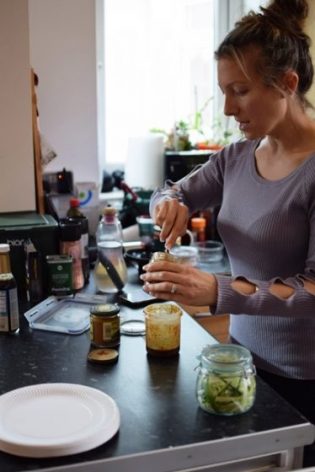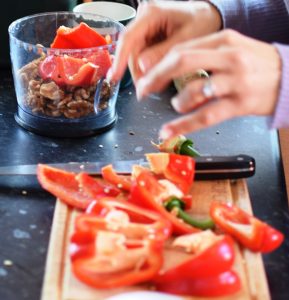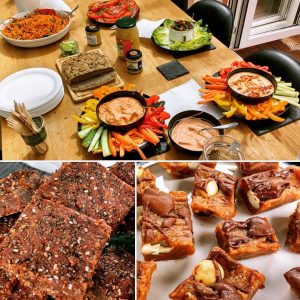Is the price of organic produce standing in the way of your budget?
Fortunately, there are several strategies (tried and tested by me and my personal training clients) you can apply, that will not only help you integrate organic produce into your diet, but improve your overall health too! These strategies have changed the way my personal training clients eat, shop and organise their weeks.
They have reported not only of having more energy, feeling fitter and leaner and having better quality sleep – but they suddenly appear to have more time than they previously thought they did! So I hope you find them just as beneficial and useful 🙂
Stick to the List
There’s an ongoing debate about whether one needs to be eating ‘organic everything’. I personally have had some very strong reactions to certain pesticides, whereas other people may display no symptoms at all.
If ‘going fully organic’ is not an option for you, you’ll be pleased to hear not all non-organic fruits/vegetables are as pesticide-rich as others. Some have a naturally protective layer that provides a ‘shield’ against pesticides!
The Environmental Working Group calls these ’the clean fifteen’ and they are:
- avocado
- asparagus
- aubergine
- cabbage
- kiwi fruit
- grapefruit
- mango
- onion
- peas
- pineapple
- papaya
- sweetcorn
- sweet potato
- cantaloupe
- watermelon
The produce list that have no protective layer and the most amount of pesticide residue are called ‘the dirty dozen’ (despite there being 14 of them!) These are therefore the fruits and veggies that me and my personal trainer clients buy the organic versions of. They are:
- apples
- celery
- cherries
- grapes
- cucumber
- lettuce
- nectarines
- peppers
- peaches
- kale
- spinach
- spring greens
- blueberries
- strawberries
Go local
Many local farm shops will be able to tell you which of their products are pesticide free, which can reduce your weekly shopping bill. Do check the origin though, as I found out recently a local Southampton butcher imports its chicken breasts from Spain! 😯
Buy in bulk
The savings can be astonishing, especially if you buy online. For example, a 1kg of organic quinoa that cost us £7.99 has lasted well over a month! Grains like quinoa and millet go a long way and are easy to batch cook (so you can use the leftovers for lunch the next day.) Frozen organic vegetables, fruits and even fish can also work out a lot cheaper.
Less animals, more plants
My husband and I have watched our weekly shopping bill dramatically decrease, from introducing more plant-based meals. As a result, not only have both our energy levels, digestion and general health improved, we also have the funds to spend on organic chicken, fish and eggs that we previously did not – just from eating them less often! Start by dedicating one day of the week to being plant-based (such as ‘Meat Free Monday’).
REMEMBER: Choose one healthy meal at a time and don’t worry about the future. It’s easy to feel overwhelmed with what you believe you should or shouldn’t be eating, so to learn more about what will work for you apply for your FREE consultation today!




